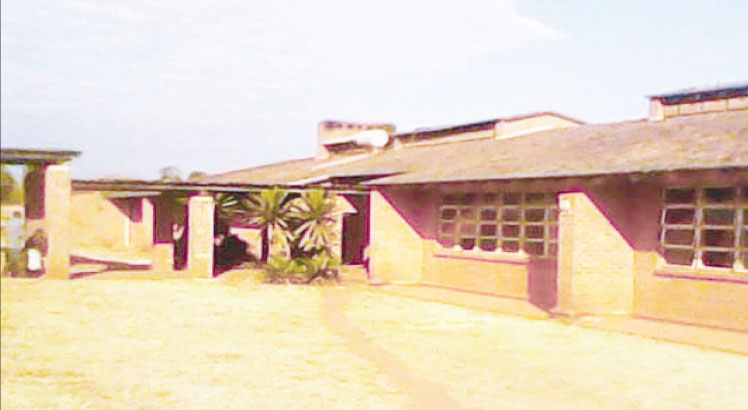Chayamba’s reason to smile
Chayamba Secondary School sits at the heart of Kasungu Municipality, but used to experience water challenges typical of rural settings.
“We were waking up early in the morning to scramble for unsafe water with teachers and the surrounding communities at a shallow well. It’s not healthy,” says students’ council leader Chifuniro Chaliwa.
Studies show that most shallow wells are contaminated by faecal matter from pit latrines in nearby settlements.
The lost hours in search of water were disturbing teaching and learning.Besides, waterborne diseases were also common among students.
“Meals were being served too late and some students were skipping classes as they went to fetchwater for personal and kitchen use,” says Chaliwa.
Others were going to class without taking a bath.
The 653 students had to do with unsanitary classrooms, hostels and toilets amid Malawi’s deadliest cholera outbreak which claimed about three in every 100 patients, superseding the World Health Organization’s threshold of one percent.

The disease averted by safe water, sanitation and hygiene claimed 1 768 lives from 59 000 confirmed patients. The public health emergency forced the Ministry of Education to delay the opening of schools in Blantyre and Lilongwe, the hotspots for infection.
Chayamba is supplied by the Central Region Water Board (CRWB). Like many locations in Kasungu Town, the learning institution experiences erratic water supply.
“Water supply was unreliable. We used to spend days without water,” Chaliwa says.
The dry taps have forced some Kasungu residents to dig shallow wells contrary to the Water Resources Act of 2013.
The law prohibits abstracting groundwater in areas supplied by water boards.
However, Kasungu residents face the hard choice between upholding the law enacted to protect groundwater or taking the unorthodox way to meet their water needs when CRWB stutters.
Chayamba Secondary School management has been petitioning hard for a steady water supply.
Their school’s water woes are on the wane following the installation of a solar-powered water supply system complete with a 10 000-litre tank.
Sonder Project established the K29 million system with clearance from the National Water Resources Authority.
Its director Beria Michembo says Chayamba Secondary School’s on-off water supply was a health threat in the wake of the cholera emergency.
“We learnt about the water challenges at Chayamba in 2021 and stepped in to improve the situation. We believe this water system will help create a safe learning environment for the learners,” she says.
The non-profit organisation has been sponsoring needy students since 2021 when they identified the water stress.
“The students could spend days without water,” says Michembo. “This project is a product of elaborative efforts by the school management and Sonder Project.”
Headteacher Rodgers Banda envisages a steady water supply improving learners’ academic performance.
He says: “We are all excited because we now have free and reliable water supply in the teaching area as well as in the staff houses.
“We expect hygiene to improve and also the fears of cholera are no longer there. Students will now spend more time in class instead of spending hours to fetch water.”
A solar-powered pump abstracts groundwater from 50 metres deep.
The system was commissioned by Central East Education Division manager Billy Banda.
“Now that students no longer have to walk long distances looking for water, we expect them to spend most of their time studying and improving their performance,” he said.
He urged teachers and learners to care for the water facility for their good and generations to come.
A 2022 voluntary review of national progress to achieve Sustainable Development Goals shows that Malawi is on track to provide universal access to water and sanitation for all by 2030.
Currently, at least 67 percent of the population has access to improved sources of safe water, but experts say the distribution of water facilities among districts and between urban and rural areas remains uneven.






One Comment